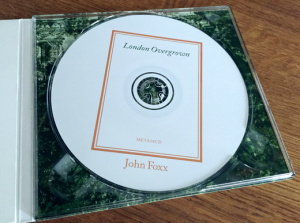WARNING: SPOILERS!
Aquaman (2018).
So… there’s this story that starts at an old lighthouse. One stormy night the lighthouse keeper gets to mate with a sea-visitor. They produce a hybrid child, then there’s a submarine attack on a sunken alien city… and there’s a devolved race of monstrously fishy trench-dwellers, a giant trapped sea-monster under the ocean that’s a octopus-dragon-squid hybrid… then a mysterious stone codex with ancient lettering on it, and to decode this our heroes need to discover a hidden ancient city under the Sahara. It’s Lovecraft, right?
Nope. It’s the big-budget Aquaman. Having been told the new Aquaman movie is “surprisingly Lovecraftian”, I’ve now seen it. While it certainly has broadly Lovecraftian moments and elements, at its core it’s the stock-formula pulp that Lovecraft was writing against: those 1920s pulp tales which tiresomely re-worked well-worn themes of politicking medieval kingdoms, over-proud war-hungry princes, treacherous councillors, beautiful princesses who fall for the flawed and banished hero-prince, and a hidden ancient Sword That Will Unite the Kingdom. The pulp authors merely placing these stock elements in some hidden underground realm, on Venus, at the poles, or in this case underwater. Read a half-dozen good ones, and you’ve basically read them all.
That said, Aquaman is generally very enjoyable for what it is, and is full of very well-made visual spectacle. The amount and duration of high-end CG is amazing, and there is a ton of money on the screen. After recent disasters DC must have ‘bet the farm’ on this one, and it’s paid off. Despite the CG it’s all very believable and coherent, and in terms of the physical acting involved in doing ‘underwater’ I saw no flaws. The design values are very high in terms of how things look, and the costumes, vehicles and creatures are all well integrated into a tight example of movie world-building.
Is it Lovecraftian? Not really, certainly not as much as some have claimed. Though it has its moments:
* the opening of the movie echoes the opening of “Innsmouth”, in terms of the submarine attack on the underwater reef. This attack is, of course, a ‘false flag’ attack in a hijacked submarine. Aimed at helping the wicked power-hungry prince to stir up a war against the hated surface-dwellers.
* almost nobody will notice, but we see that Aquaman’s dad has been reading “The Dunwich Horror” before he mated with the Fishy One From The Sea (who after some initial puking very quickly turns from bedraggled mermaid to primped Glamour Queen). The book is under the snow-globe that emotionally grounds the movie’s opening scenes. The book should probably have been “The Shadow over Innsmouth” for thematic congruence, but I guess Hollywood felt that might be a little too politically incorrect.
* then there’s an undecipherable carved stone with a hidden message in it, and it needs to be taken to an ancient ruined city of the forgotten ones under the Saharan desert. But Aquaman and his companion princess have an Atlantean GPS to reach its hidden entrance, which is kind of lame. They could at least have used some kind of mystic ‘water-sense’ to follow the vast amount of water that’s said to be sunk beneath the desert.
* the secondary baddie starts quoting Lovecraft directly (“Loathsomeness waits and dreams in the deep, and decay spreads over the tottering cities of men”), when he surfaces for his big second-act battle with Aquaman. However, his costume looks so utterly ridiculous and camp that you just can’t take him seriously. He’s obviously disposable and just there for Aquaman to beat up, half way through the movie. The need to fit with the DC universe meant that the movie’s makers lost a huge opportunity to make him a deluded Cthulhu-worshipping cultist, whose secret double-crossing aim is to release the…
* giant Cthulhu-like mountain-sized Kraken-y sea monster that has been trapped below the sea for aeons. This monster is, of course, released… though no cultists are involved in making this happen.
* we get the briefest mention of a crucial bit of back-story involving Atlanteans who survived the famous deluge of Atlantis and remained pure-bloods and the Trench dwellers who did not remain pure and fell into a “savage regression” biologically. While the visual look of this devolved race is Lovecraftian, when it’s eventually revealed, the cultural nod is actually more to H.G. Wells and his famous devolved Morlocks. This is confirmed when we learn that the Trench dwellers hate light, and can be driven back merely with lighted distress flares.
* there’s ten minutes of a nightmare encounter at sea with this devolved deep ocean race. These are definitely Derleth-Lovecraftian in appearance, and we’re told they were once Atlanteans but that they devolved in a “savage regression” to fishy bestiality over the millennia. This scene has its moments, but the monsters are again only really there for Aquaman to battle past… so that he can reach a tropical Thunderball-like Paradise Island… where the Magic Trident of All Power power-up thing is resting.
* the Magic Trident of All Power power-up thing is in a cave behind the Glowing Waterfall, where it’s guarded by a giant tentacular being. But Mrs Squiddy talks, in a manner more akin to Tolkien’s Smaug the dragon than to anything in Lovecraft. Anyway… there’s little time for a chat, as War Is Brewing.
Except for about 30 seconds in the dark Trench, the ocean conveys no sense of a vast and eerie darkness, and there’s no unfathomable ‘cosmic awe’ akin to outer space. So, it’s not Lovecraftian in that sense.
Is it DC, then? I have no clue at all about that, not being a DC fan. I know absolutely nothing about the DC comics version of Aquaman, other than that he’s DC’s equivalent of Marvel’s Sub-Mariner character. I thus probably missed many DC-tastic Easter Eggs, but I guess they’re in there. I only noticed how Aquaman positioned itself to dovetail with other blockbuster properties. Disney’s Tron: Legacy is probably the biggest debt it owes, and that debt is massive. But this viewer didn’t mind in the slightest, since the movie re-works the best bits of the Tron sequel so beautifully, at such duration and on such a vast scale. In terms of the hero’s own personality and style it’s very obviously pitched as a rival to Marvel’s Thor. As ‘screen fun with a coherent story’, Aquaman even manages to hold its own against the excellence of the latest Thor: Ragnarok movie. Those who know the Lord of the Rings movies will also spot visual nods in Aquaman, such as the distant shot where a tiny Gandalf falls silently into the inky depths of Moria.
Overall Aquaman is entertaining fun, and if you have a strong bladder it’s worth seeing at the cinema purely for the visuals. It deserves its “top movie of Christmas 2018” box-office cash take. I’d be surprised if there wasn’t an Oscar in the offing for the costume designers and/or the action scene story-boarders. Although in terms of ‘action Oscars’ they’ll have tough competition from the latest Mission Impossible.
The story and dialogue is… still messy, but it’s an enjoyable mess. It veers wildly between jaw-dropping fanboy ridiculousness, over-the-top camp homage, and a surprisingly sugary moms-iness. But this isn’t meant to be a movie that one thinks about deeply. It’s just a good adventure romp and zips through at a fast pace. The Thor-like hero is engaging and of the ‘clever guy who hides it under goofy-and-dumb’ type, and his Atlantean princess is winsome-but-tough. Their dialogue might have popped and surprised just a little more. But on the other hand the script editors have kept the talkiness and jokes under control. There are some three-minute “let’s talk about our feelings” family reunions, but there’s no turgid lecture-mode that slows things down every ten minutes (as in the interminable second movie of The Guardians of the Galaxy series). The usual worthy ‘messages’ from the Hollywood elite are in there, but only briefly and at a very basic level:
* don’t put plastic and effluent in the sea;
* ‘place all humanity above the needs of one nation’;
* modern pirates are bad people;
* human/Atlantean half-breeds can become King, if they prove themselves worthy by their actions.
The latter point raising the question of what, exactly, some of the surviving Atlanteans were mating with in order to devolve into Trench dwellers — thus raising in the remaining pure Atlanteans such an abject horror of hybridity that they never once pause to make the obvious distinction between humans and lobsters. By the look of it, the rogue Atlanteans were sneaking off to snuggle up to the primitive Giant Crab People on dark nights. Which, in a way, is very Lovecraftian.

















